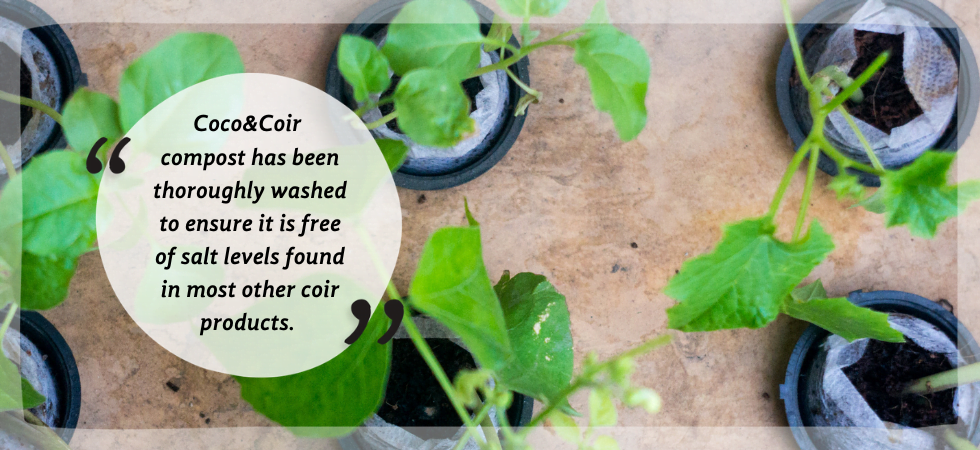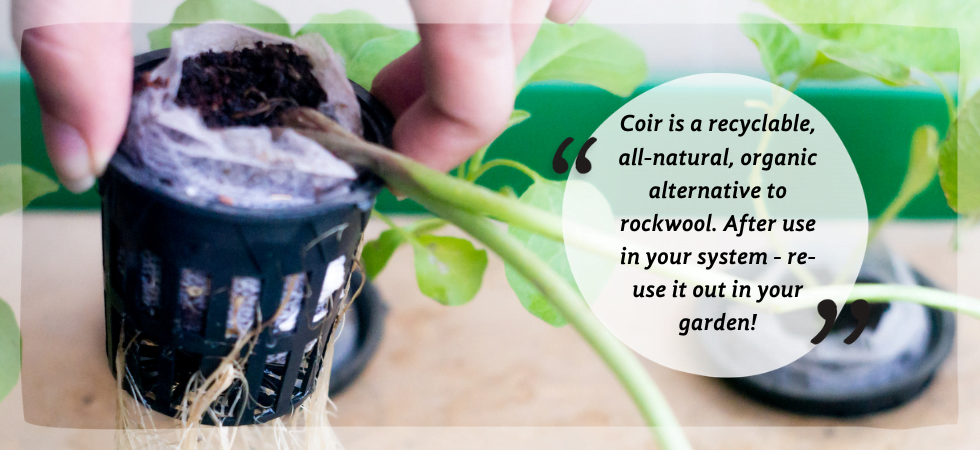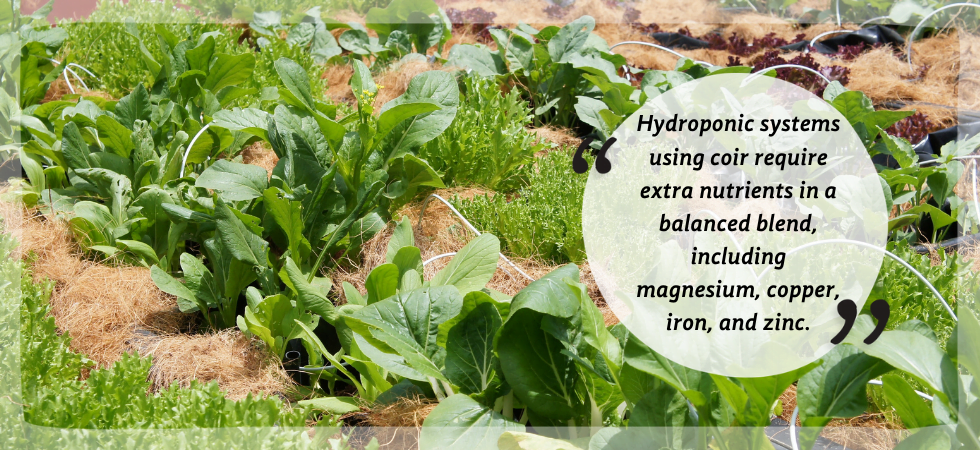Can coco coir be used in hydroponics?
Can coco coir be used in hydroponics?
Considering adopting a soil-free planting system? You’ll be following in the footsteps of the Aztecs, ancient Chinese and NASA astronauts. And if you’re wondering if coco coir can be used in hydroponics, the answer is a resounding Yes! Read on for lots of tips on how to get the best harvest from your hydroponics.

Best coco coir for hydroponics
Compost made from pure coco coir fibre is perfect for hydroponics. It’s completely sterile and has been triple washed to remove salts and other impurities. Coco fibres are fine enough to allow plant roots access to oxygen, while still retaining that all-important nutrient-rich water, and giving them stability. And the lignins – naturally occurring good bacteria – within coco coir also boost plant health.
Our top recommendation would be our Coco Grow+ blend. The 20% added perlite increases this potting mix’s porosity. By being loose and airy, it helps get roots establish and develop faster. As Grow+ is a pH balanced coir compost, it’s ideal for growing healthy seedlings. It also has a slow decomposition rate.
Other bonuses of coco coir compost
• Kinder to your muscles: coco coir compost is 4 times lighter than traditional composts.
• Kinder to the planet: our 100% coco coir compost is made from quickly-growing coconut tree fibre and waste fibre. No peat bogs have been harmed in the making of this product.
• Less plastic packaging to get rid of.
• After hydroponic use, coco coir can be recycled by transferring it into your garden
Coco coir vs rockwool hydroponics
What is rockwool?
Don’t flock to thinking about Stone Age sheep! That would be baa-d. (Sorry, we’ll stop with the puns). Rockwool is actually made from non-renewable basaltic rocks. They are melted down and spun into rock wool fibres. The next step is to add a binding agent before pressing the fibres together into blocks.

Pros of rockwool
• It retains more water than coir
• It insulates better than coir – well, it is used for insulating houses after all!
Cons of rockwool
• Holds onto fewer nutrients than coir
• It’s heavier than coco coir
• It contains zero organic matter, which makes it harder for ‘good’ micro organisms such as mycorrhizae to thrive
• Can irritate the skin, eyes and lungs so you must wear googles, gloves and a mask when handling it
• Unlike coir, rockwool cannot be recycled once it’s been used and will need to go to landfill
How to prepare coir for hydroponics
Unlike other coco coir, our compost doesn’t need to be washed to remove salts and impurities. It’s already been done for you!
1. First rehydrate the coir. The easiest way is to soak your coir block in warm water for 15 – 30 minutes. The compost will ‘fluff up’ and expand. The process is covered in detail in How to prepare coco coir.
2. Pour the mixture into your hydroponic system
3. Let it drain
4. Add additional coco coir to your planting pots or trays
5. Plant your seedlings, plant plugs or more mature plants
6. Add the correct level of hydroponic nutrients to your water such as magnesium, copper, iron and zinc
For more advice, check out the Royal Horticultural Society’s guide to hydroponics.

Hydroponics plants for beginners
If you’re starting out in hydroponics, it can be tricky to get the nutrient levels right. So why not pick the more easy-going plants rather than the divas?
We recommend:
• Leafy salad greens like lettuce and spinach
• Beans – green, lima, pinto… Just remember to add a trellis if you’re growing a climbing variety
• Kale
• Cucumbers
• Peppers
• Tomatoes – including cherry varieties. But make sure they’re supported!
• Radishes for that peppery bite
• Strawberries
• Blueberries
Tips from the ‘Green Gardeners Guild’ online advice library
On the lookout for more tips and hints? Our blogs are packed with advice:
• Switching to coir coco peat: ecological and practical reasons
• Where to buy Coco Coir, and how to judge the quality
• How often should I give my plants nutrients?
Share your slice of hydroponic heaven!
We love seeing our coco coir being used in hydroponic horticulture. Please post your pictures and tag @cocoandcoir on Instagram. We’ll credit you for any images we use and you’ll also be in with a chance to win some Coco & Coir goodies.










